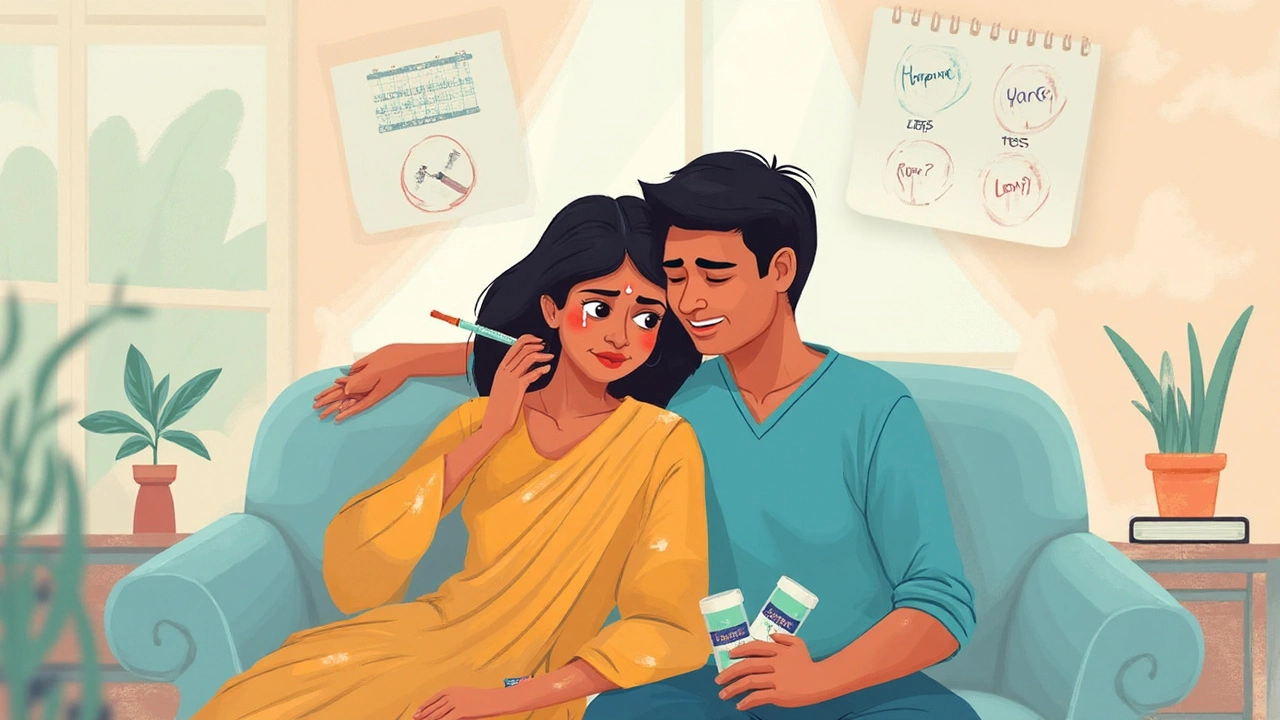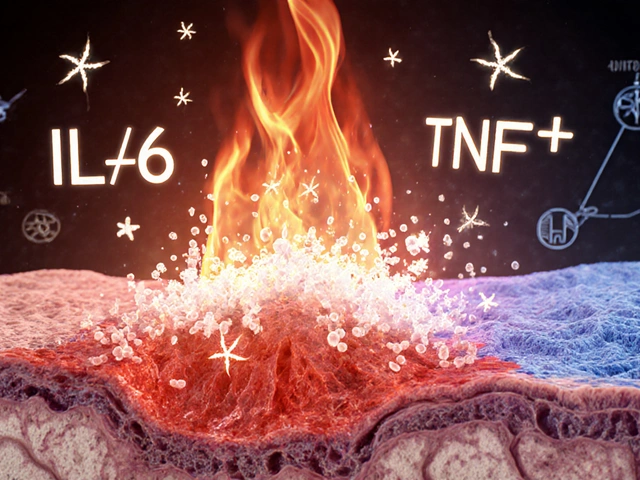Imagine moving mountains for a dream—only these mountains are inside clinics, boxed in daily medication doses, blood tests, and ultrasounds. IVF isn’t just a medical treatment; it’s a full-on trek through physical and emotional terrain nobody really warns you about. Movies and Instagram often show a neat before-and-after: ‘Here’s our happy baby, thanks to science!’ In real life, the journey is much rougher. The question I hear all the time from friends and even strangers is, what’s the most painful part? Is it the injections? The egg retrieval? Or is it the emotional ride that sticks the most?
The Physical Pain: What Does IVF Actually Feel Like?
IVF is full of needles—and let’s be real, unless you’re a superhero, no one enjoys daily jabs. Most protocols start with hormone injections that last anywhere from 8 to 14 days. These shots, usually in your belly or thigh, pump up your ovaries to churn out extra eggs. You might be told the needles are tiny and ‘not too bad,’ but some evenings you’ll be swearing as you try to muster up the courage before poking yourself. Bruises and tenderness build up after a week, and it’s common for skin to look like a patchwork quilt. Some people get headaches, nausea, night sweats, or even bloat up like they’re hiding a basketball under their shirt. The swelling is real—your jeans might not button by the end.
Now, let’s talk about blood tests. On IVF, your blood is drawn so often you’ll feel like an overused donor at a blood bank. Every other day—or even daily—you’re back at the clinic, rolling up your sleeve, having a nurse say, ‘Just a little pinch!’ As your follicles ripen, you’ll also have back-to-back vaginal ultrasounds. At the peak, some people joke they see their IVF doctor more than their partner. These early-morning appointments zap your energy and can mess with your work and routine.
The main event is egg retrieval day. In most clinics, light anesthesia is standard, so you’re drowsy and not awake for the business. But the post-procedure cramps, bloating, or pelvic pain can feel intense. Some women recover in an hour, others might need the whole day, curled up on the couch with a heat pad and a very supportive dog like Bolt (mine glued himself to my side when my friend went through IVF). Grown adults often compare the pain to heavy period cramps or a dull muscle ache, not razor-sharp agony, but enough that you cancel plans. In rare cases, there’s a risk of ovarian hyperstimulation, where the ovaries swell up and fluid shifts in the body—this part can be scary, with reports of nausea, sharp pain, and ER visits.
Here’s a snapshot of how the process feels at each step:
| IVF Stage | Physical Pain/Discomfort |
|---|---|
| Hormone Injections | Soreness, bruising, mild stinging, swelling |
| Blood Tests | Sore veins, small bruises, mild discomfort |
| Vaginal Ultrasounds | Pressure, minimal pain, emotional awkwardness |
| Egg Retrieval | Cramps, pelvic pain, risk of moderate pain |
| Embryo Transfer | Minimal physical pain, mild cramping |
Once the embryos are transferred (a bit like a quick Pap smear with a thin catheter, not painful but very stressy), you hold your breath. The physical symptoms then shift—lots of people swear they feel every twinge, every bubble, but it’s mostly waiting and hoping.

The Emotional Roller Coaster: Pain You Can’t See
The hidden agony of IVF is in the hope and uncertainty. Picture this: every injection, every appointment, every call from the lab—your mind spirals. Will it work this time? What if it doesn’t? You may start avoiding friends who get pregnant easily, or act like you’ve developed an allergy to baby showers. It’s isolating—people try to support you, but unless they’ve done IVF themselves, they can’t quite match the right words.
Studies out of the UK tracked women undergoing IVF and reported that about 30% needed significant mental health support before the process was over. Anxiety spikes at every stage: when follicles are counted, when the lab updates embryo quality, when you take a pregnancy test. The two-week wait after the embryo transfer is agony—the word ‘wait’ takes on a raw, anxious flavor. A lot of people compare it to exam results day when everything you’ve worked for hangs on a single outcome—but you might not get another chance.
Men and non-birthing partners have their own stress. Sometimes their role feels sidelined. You help with shots, get snapped at for ‘not doing them right’, want to be helpful but sometimes end up feeling like you’re standing on the sidelines while your partner goes through all the pokes and prods. Not knowing what to say is a pain in itself.
Shame, anger, jealousy—these are words people rarely say out loud, but they buzz in your head. One Reddit user shared, ‘I hated seeing pregnancy announcements on Facebook, it was like a kick in the gut.’ That jealousy brings guilt, and the cycle goes on. Therapists specializing in fertility call this “anticipatory grief”—the sorrow you feel not just about a potential loss, but also for all the effort if things don’t pan out.
Financial stress also piles on. IVF isn’t cheap—in India, each cycle costs between INR 1,00,000–2,50,000, and you might need multiple cycles. Add in medications, time off work, travel, and suddenly your savings are draining alongside your emotional reserves. One study found couples who ran out of money or insurance coverage halfway through were much more likely to give up on treatment, regardless of their desire for a child.
All that adds up to a kind of pain you can’t measure on a pain scale, but it lingers much longer than any bruise or injection sting.

Getting Through the Pain: Tips, Hacks, and Real Talk
No one gets a roadmap for IVF pain, but some hacks and facts might help. First, for physical pain—ice packs before injections numb the skin, so you barely feel the sting. Rotating sites (belly, thigh, maybe upper arm) prevents bruises. For the post-retrieval soreness, a heating pad, light walks, and your favorite binge-worthy show can make a world of difference. Hydrate like you’re preparing for a marathon, because water helps your ovaries recover.
If you’re scared of needles (join the club), distraction helps. Play music, watch a viral video, or have your partner crack a really bad joke while you jab. After all, you’re a pro by week two—it’s just muscle memory by then.
Mental health is where the real battle happens. Counseling actually makes a difference—look for therapists trained in fertility. Journaling the process or joining a support group (online or in-person) can clear out the brain fog. Apps like Mindfulness Coach or Calm aren’t just for yoga teachers; the breathing techniques really lower that panic-before-the-phonecall feeling. Some clinics even offer group sessions; if you’re the kind who groans at group therapy, think of it like a team huddle before a big game.
Telling friends and family is tricky. Decide early how much you want to share. It’s okay to set boundaries: ‘We’re trying something medical, we’ll keep you posted, but please don’t ask every week.’ It keeps well-meaning but nosy questions at bay.
Bolt, my dog, isn’t medically certified, but there’s real science showing pets reduce stress hormones. Cuddle your pets—it triggers an oxytocin boost and short-circuits anxiety. Even a brief walk with your dog can break up days that feel endless between blood tests and hopeful waiting.
Check your local legal rules too. For example, in India, the ART (Assisted Reproductive Technology) Act, 2021 governs IVF clinics now, so there are strict rules about embryo transfer numbers and donor use. Knowing the system can save you from nasty surprises later.
If IVF doesn’t work, the grief is real but so is the resilience. Many couples pivot to other paths—more cycles, adoption, or child-free life. None of those choices are easy, but after IVF, you realize how tough you really are. It’s a mountain, but every step counts—even if it hurts. Just remember, the pain others joke about—‘oh it’s just a few jabs’—really means a lot more, and you’re not weak for feeling every bit of it.








